How To Use Emotional Intelligence in Human Resources
HR is one of the most effective places to apply what we know about emotional intelligence. Besides contributing to better communication, relationships, and problem-solving among current employees, emotional intelligence can also help you to identify the best candidates for positions within the organisation.
Using Emotional Intelligence Interview Questions
Emotional intelligence interview questions can be extremely helpful in narrowing down your pool of applicants, especially if you have a lot of applicants with similarly impressive qualifications.
However, make sure you don’t just jump in and come up with your own ways to assess emotional intelligence; follow these guidelines to make sure you’re doing it the right way.
Don’t:
- Use personality tests as a proxy for EI; many of the EI/EQ measures are designed to measure emotional intelligence as a facet of personality rather than an indicator of work habits, competencies, and skills. They may not measure specific components of emotional intelligence such as self-awareness, positive outlook, achievement orientation, empathy, or inspirational leadership.
- Use a self-report test (i.e., a test in which your candidates answer questions and report on their own emotional intelligence. This doesn’t really work for two reasons: (1) if a person is not self-aware, they possibly aren’t going to be able to accurately assess their own emotional intelligence, and (2) if they are self-aware, you could be giving them the opportunity to exaggerate their skills or abilities and make themselves seem like a better candidate than they really are.
- Use a 360-degree feedback instrument-even if it is a good measure of EI competencies. A tool like 360-degree feedback is best used for development and improvement in current employees rather than evaluation and hiring. When these instruments are used to evaluate, some people “game” them by carefully selecting the respondents and even instructing them how to answer the questions.
Do:
- Get references for the candidate-and actually call them. Letters of reference don’t cut it when it comes to gauging a candidate’s EI/EQ, because they are carefully prepared, static, and usually pretty general. When you get the chance to speak with a candidate’s references, you can ask them questions that really get to the heart of EI/EQ and its subcomponents and competencies. Get as many examples as you can and press for details. Above all, be sure to ask for examples of how your candidate treats other people.
- Interview for emotional intelligence. This might sound easy or something you are already doing, but chances are you aren’t actually assessing EI/EQ. In interviews that aren’t strictly structured, we usually let people be vague in their responses-even to the point of not really answering the question-and we often fail to ask good follow-up questions. Even when we ask candidates directly about emotional intelligence or EI-related competencies, they generally provide us with a picture of an idealised version of themselves rather than an accurate portrait of their real selves. To overcome these obstacles to getting a good handle on your candidates’ EI/EQ, behavioral event interviewing is the way to go (McKee, 2016).
Behavioural event interviewing is a method that allows you to see their EI/EQ competencies almost firsthand.
Annie McKee from the Harvard Business Review explains how to do it:
- Start the interview off on the right foot; make it as warm, friendly, and comfortable as possible. This will help you get the candidate in a frame of mind conducive to sharing the information you want to get.
- Ask a few traditional questions about the candidate’s experience, background, and education.
- Next, ask the candidate about a recent situation where they and some peers (coworkers, teammates, etc.) faced a difficult challenge that needed solving, and encourage them to pick one where they are the “protagonist” of the story and one where they were ultimately successful and/or proud of the solution.
- Ask the candidate to tell the story in a few brief sentences first. Once you have the outline, have them go over the story in detail and ask specific, detailed questions about it (e.g., what they thought at a certain point, how they felt about what happened, what they did about it).
- Ask the candidate to share a similar story except this time, it should be about a time when they failed and learned a valuable lesson. Again, have them give a brief overview then go more in-depth, and ask detailed questions.
- Finally, end on a positive note-ask for another positive story.
This technique will give you insight into your candidate’s thought processes, their awareness of their own emotions, how they think and feel about others, what they do during a conflict, and how they handle disagreements and challenges with other people.
25 Emotional Intelligence Interview Questions
There are many great questions you can ask to gauge emotional intelligence. These six were identified by Karla Cook, editor and team manager at HubSpot Marketing, as some of the best ones to get an indicator of EI/EQ:
- Can you tell me about a time you tried to do something and failed?
- Tell me about a time you received negative feedback from your boss. How did that make you feel?
- Can you tell me about a conflict at work that made you feel frustrated?
- Tell me about a hobby you like to do outside of work. Can you teach me about it?
- What would your co-workers say is the most rewarding thing about working with you? What about the most challenging thing?
- Can you tell me about a time you needed to ask for help on a project?
These six questions offer you some great opportunities to learn about your candidates EI/EQ, but if you need even more suggestions, check out the list below from Alison Doyle at The Balance Careers:
- What is one of your weaknesses? How do you overcome that weakness?
- What motivates you to do your work?
- Describe a stressful work situation you’ve had. How did you resolve that situation?
- What are one or two things that make you angry or frustrated at work? What do you do when you get angry or frustrated at work?
- Tell me about a time when you received feedback on your performance, and you disagreed with the feedback. How did you handle the situation?
- Tell me about a setback you had at work. How did you handle it?
- Describe a time when you made a big mistake at work. How did you handle the situation?
- Tell me about a time when you had to handle multiple work assignments at once. How did you feel? How did you handle the situation?
- Tell me about a time when you took on a task at work that was new to you. How did you feel doing it?
- How would you handle a coworker who consistently does not pull his weight on group assignments?
- How do your colleagues benefit from working with you?
- Tell me about a time when you did or said something that had a positive impact on an employee, coworker, or customer.
- Have you ever noticed that someone at work was having a bad day? How did you know? What did you do?
- Tell me about a time when you had a dispute with a colleague. What did you do to deal with the situation?
- Describe a time when a colleague came to you with a problem. How did you respond?
- Tell me about a time when understanding someone else’s perspective helped you accomplish a task or resolve an issue.
- Tell me about a time when you motivated someone to accomplish a task. How did you motivate him or her?
- Why is it important to develop a rapport with your colleagues?
- How do you build a rapport with your colleagues?
When hiring, gauging emotional intelligence in a candidate can be as important, if not more important, than past professional experience and credentials. HR professionals are more likely to choose higher performing candidates resulting in a stronger, more engaged and higher performing team as a whole.
Is your HR department focused on emotional intelligence as part of your hiring process? Learn more about how to incorporate EI into the development of teams with Luminary Mindset and our range of leadership and development coaching services. Get in touch with us at info@luminarymindset.com.








